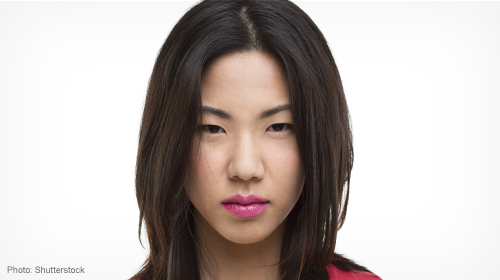
UPDATE: On March 12, 2014 we appealed the dismissal of our challenge to Arizona’s discriminatory race- and sex-based abortion ban (HB 2443).
The American Civil Liberties Union and the ACLU of Arizona filed a lawsuit today on behalf of the NAACP of Maricopa County and the National Asian Pacific American Women's Forum (NAPAWF) challenging a state law that relies on harmful racial stereotypes to shame and discriminate against Black women and Asian and Pacific Islander (API) women who decide to end their pregnancies. A version of the following piece by Zeenat N. Hasan, co-founder of the Arizona chapter of NAPAWF originally ran in Arizona Central on April 3, 2013.
Arizona lawmakers have enacted some of the most restrictive abortion bans in the country, from limiting access to health-care providers to restricting medical education.
The sponsors of Arizona's so-called "prenatal nondiscrimination" law justified it based on a xenophobic stereotype that Asian women prefer sons over daughters and will abort based on the sex of the fetus. The law casts any Asian-Pacific-American (APA) woman who decides to have an abortion as a suspect, stigmatizing each and every APA woman who makes the personal and private medical decision to have an abortion.
As an Asian-American woman, I am concerned about the damaging effects of this law on my community. We already face many health risks. Language barriers, economic pressures and cultural taboos toward sex prevent a significant number of Asian-American and Pacific-Islander women from seeking and receiving quality and timely reproductive health services.
Our community also is less likely to use birth control to prevent unwanted pregnancy, and we experience some of the highest rates of breast and other preventable cancers.
More than two-thirds of Asian-Americans in Arizona are foreign born, and Arizona's Senate Bill 1070 and other anti-immigrant laws have created a chilling effect in the community. Our families need health services but are growing fearful of law enforcement as well as health and human-service providers.
Asian immigrant women struggle with domestic violence, for example, but often do not report the crime because they fear being separated from their children because of their immigration status.
My partner and I have begun to plan a family, but I face growing restrictions on my ability to determine my own reproductive future. Newer laws aimed specifically at women's reproductive-health rights not only deepen health and economic disparities, but harm the most vulnerable women — low-income women and women of color. These regulations infringe on aspects of our lives that are (and should remain) private.
For women like me, it is impossible to disentangle the relationship between reproductive choices and our economic health. Indeed, it often determines whether we live in economic prosperity or disparity.
As our numbers grow in Arizona, Asian Pacific-American women must stake a claim in the political process and work to protect our reproductive rights by voting, organizing and speaking out.
With that in mind, I co-founded the Arizona chapter of the National Asian Pacific American Women's Forum. Our group calls its members "fierce sisters."
The Arizona Legislature may try to tell us we are suspect because we are different, our bodies are not our own and that we don't matter. But listen up, Arizona: Asian-American and Pacific-Islander women and girls are critical to the future of Arizona.
We're fierce. We're sisters. And we do matter.
Learn more about abortion rights and other civil liberty issues: Sign up for breaking news alerts, follow us on Twitter, and like us on Facebook.



